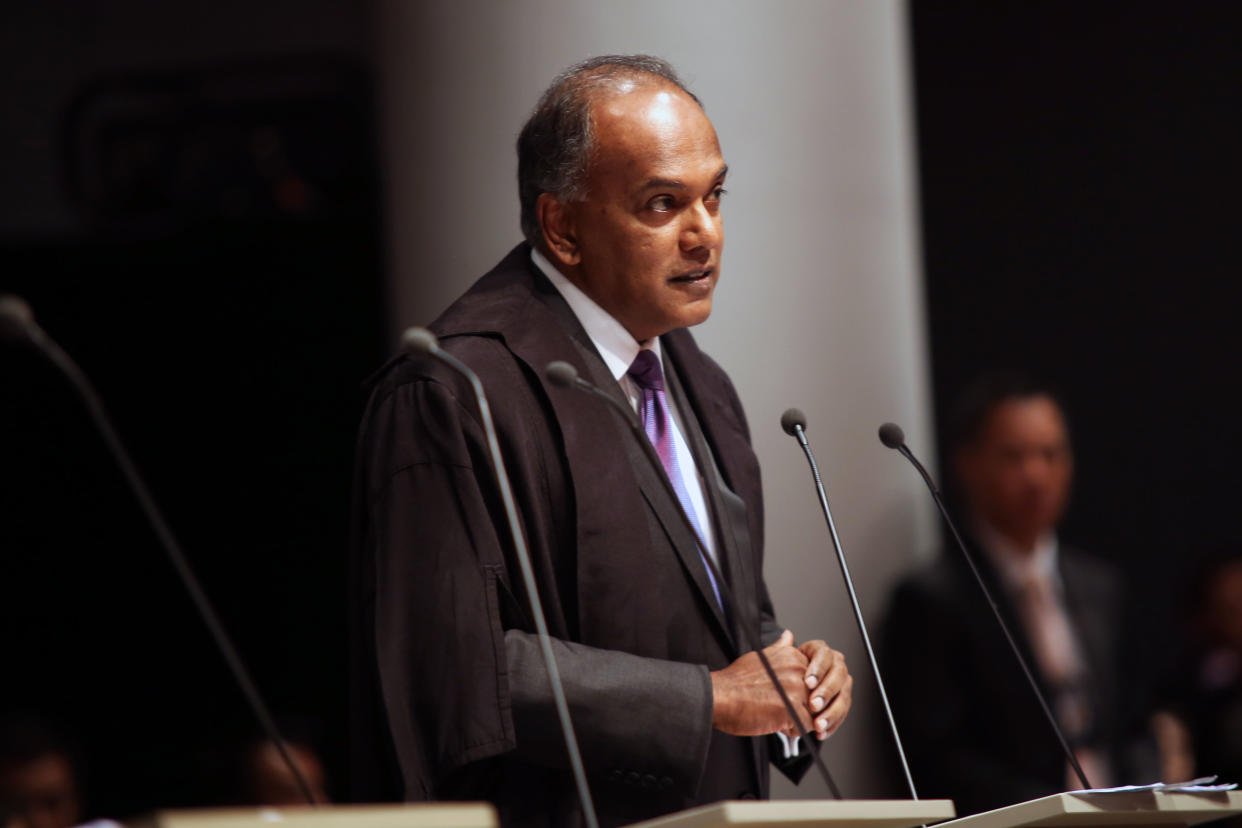Fake news could cause people to be disillusioned: Shanmugam

If left unchecked, the deliberate threat of online falsehoods may destabilise Singapore by exploiting racial and religious fault lines, said Law and Home Affairs Minister K Shanmugam in Parliament on Wednesday (10 January).
“Wide spreading of falsehoods can drown out the facts, can cause people to be disillusioned, can be manipulated to create rifts and damage social cohesion,” said the minister. “Ultimately, if left unchecked, such deliberate spread of falsehoods can undermine trust in the country, in its institutions, in democracy and affect social cohesion.”
Shanmugam was speaking on his proposed motion that the House appoint a Select Committee to examine the causes and consequences of deliberate online falsehoods, and the countermeasures that will be required to prevent and combat them here.
Singapore is ‘highly susceptible’
He noted that countries across the world have been the subject of “organised, deliberate disinformation campaigns”, conducted both by state actors and non-state actors. The Republic itself is “highly susceptible” for three reasons.
Firstly, the high Internet penetration in Singapore, with more than 91 per cent of Singaporean households having Internet access.
Secondly, the country’s diversity as a multi-racial, multi-religious society, which makes it easy to exploit fault lines through falsehoods. For example, last June, a fake story circulated that cat and dog food were mixed into a satay marinade at a Geylang bazaar.
“People can and have targeted specific sections of populations. They can target specific sections of our population, using falsehoods based on race, religion,” noted Shanmugam.
Thirdly, Singapore’s position in the region and internationally, which makes the country an attractive target. The minister said, “What we say on regional issues, financial issues carries weight. If we can be influenced and swayed, then foreign interests can be advanced through us.”
Speaking in support of the motion, Minister for Communications and Information Yaacob Ibrahim said that the issue goes beyond battling falsehoods, and is about protecting Singapore against those who wish to do the country harm.
He pointed to the defunct socio-political site The Real Singapore (TRS), which his ministry shut down in 2015. It published “clickbait” and “sensational articles”, such as a February 2015 post which falsely claimed that a Filipino family had complained about the noise from Thaipusam celebrations. This fuelled anti-foreigner sentiment, said Yaacob.
The TRS editors were eventually jailed for sedition.
Yaacob cited a government poll in May last year that showed two out of three Singaporeans were unable to recognise some or all of falsities while one in four admitted that they had shared news that was later found to be fake.
And while organisations such as the National Library Board have developed programs to raise media literacy, the minister stressed that public education is not enough. Instead, mechanisms to combat fake news are needed.
– additional reporting by Wan Ting Koh
Related stories
Government proposes setting up committee to combat online falsehoods
New laws against fake news to be introduced in 2018: Shanmugam
More cheers than jeers online over The Real Singapore arrest



